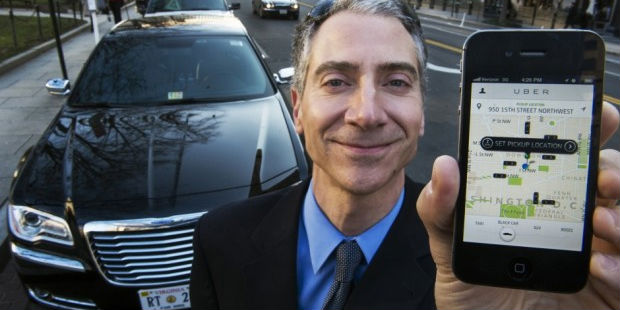It seems like an obvious statement: With the advent of technology comes progress. New ways for people to connect, transact, and help one another are continuously emerging as smartphones and social media make previously impossible interactions commonplace.
Videos by Rare
When it’s easier to cooperate one-on-one without the need for a middleman, convenience skyrockets. Whether it’s making money on the side with an online business, renting out extra space in your house, turning your personal vehicle into an Uber or Lyft, or making your home into a doggy daycare, these examples barely scrape the surface of the growing “sharing economy.”
These types of peer-to-peer transactions have the potential, according to an analysis from the McKinsey Global Institute, to unlock $900 billion to $1.3 trillion in trapped capital. This is exactly the kind of jumpstart the economy needs, particularly when you consider the United States’ 15.1% youth unemployment rate and $1.2 trillion in total student loan debt.
What better way to help the young and technologically savvy than to allow for these bottom-up dealings that decrease consumer costs and increase provider incomes? Unfortunately, too many regulatory agencies and established corporations hold an opinion on that question at odds with those bettering their lives through these innovative businesses.
Increasingly, the rise of new economic paradigms is met with resistance from government officials. If an emergent technology doesn’t fit into an existing regulatory scheme, the first instinct of bureaucrats is often to ban it instead of allowing for growth and updating regulations in response.
This is an extremely backwards and damaging approach to dealing with progress. It’s also an attitude pervasive within a big government more interested in protecting equally big corporate interests than it is in empowering consumers.
Take Uber, for example. Institute for Justice Senior Attorney Robert McNamara explained during a Generation Opportunity-hosted panel recently that only one major city responded to the ride-sharing technology in a remotely rational way. Chicago saw the advent of Uber, and instead of immediately trying to get rid of the new service, city officials recognized that it had yet to produce a regulatory scheme for this model. Regulators therefore decided to let Uber continue operating while they worked to develop new standards. The resulting regulations, while arguably unfair and crony-minded, at least represent an effort to bring Uber into the fold rather than evict the company outright.
Unfortunately, nearly every other city has reacted by attempting to ban ride-sharing technologies while trying to figure out how to deal with them. For example, Uber is still outlawed entirely in Las Vegas, a tourist-centric city where this kind of service would flourish. These types of bans have almost always been instituted with the urging of the government-protected taxi cartels and against the wishes of consumers clamoring for just this sort of product.
Uber has even gone so far as to hire David Plouffe, one of President Obama’s former chief strategists. When a company introducing a disruptive technology into the market has to invest in political clout to receive fair (or special) treatment from regulatory agencies, it illustrates what’s fundamentally wrong with letting government run amok. Instead of focusing on how to serve consumers, emergent companies must divert resources to jumping through regulatory hoops set up largely to protect the government’s favored firms.
Welcome to the inevitable cronyism that big government, which naturally protects its big corporate counterparts, yields.
Unfortunately, this problem transcends ride-sharing. AirBnb, a website that allows people to rent space in their homes, has found itself in trouble with many local governments – most notably in New York City. A recent example in suburban Boston, where police repeatedly fined residents for the apparent crime of hosting guests in their home, further speaks to the problem. Instead of pushing to move people’s use of their property rights into the modern era, local authorities are largely relying on outdated laws to justify treating people trying to make a few extra bucks like criminals. Often, this is done at the insistence of established businesses.
While companies like AirBnb, HomeAway, and VRBO claim to be distinctly different from hotels in their business model, they haven’t avoided the ire of hotel advocacy organizations. As a representative for the Hotel Association of New York City stated: “(AirBnb takes) revenue from local municipalities and jobs from local employers, and could deter travelers from returning.”
This attitude sums up the problem so common among established businesses accustomed to being legally protected. Despite their claims, changes in the economy aren’t part of a zero-sum game that leads to the wholesale destruction of jobs and income. Revenue streams and employment structures are simply adapting to new advances, and in the process, unlocking untapped potential that could help both our country’s struggling middle class and the economy as a whole. This is a good thing for consumers, as we’ll be able to access additional services and participate more readily in this emerging economy ourselves.
Try as it might, the heavy-hand of government ultimately won’t be able to stop us from sharing.



